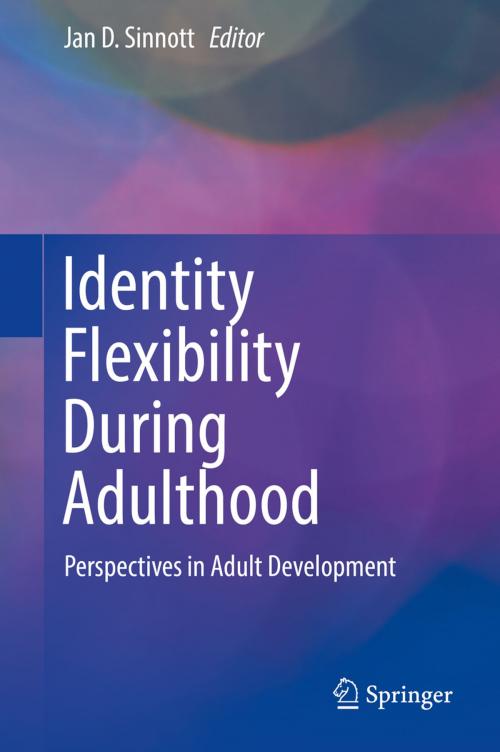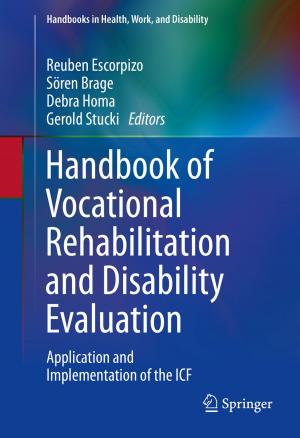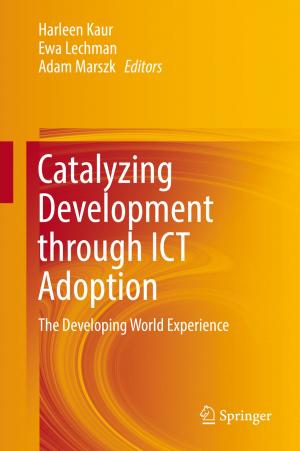Identity Flexibility During Adulthood
Perspectives in Adult Development
Nonfiction, Health & Well Being, Psychology, Developmental Psychology, Personality| Author: | ISBN: | 9783319556581 | |
| Publisher: | Springer International Publishing | Publication: | September 15, 2017 |
| Imprint: | Springer | Language: | English |
| Author: | |
| ISBN: | 9783319556581 |
| Publisher: | Springer International Publishing |
| Publication: | September 15, 2017 |
| Imprint: | Springer |
| Language: | English |
This volume seeks to explore the idea of identity as a flexible center of events around which aspects of the self and events in the outside world are organized. Historically, in much of the literature, identity was conceptualized as a somewhat fixed, unchanging construct. Scholars now have a greater awareness of more nuanced theories about identity and there is a greater willingness to accept that identity is not fixed, concrete, and permanent, but rather evolving and fluid.
Although this volume discusses a wide variety of aspects of identity as it flexibly changes during adulthood in the face of numerous experiences, it is really addressing one key question. How adaptive and fluid is identity and how can we know ourselves as both continuing and changing? Exploring these ideas raises the importance of future research on adult identity.
With a firm grounding in the historical and theoretical background of identity research, this volume begins by defining identity and the psychological “self” as a center around which the person’s behaviors and self-concepts revolve. The following chapters gather the wisdom of many writers who all accepted the challenge of talking about creating a flexible adult self and identity during adulthood. They come at this challenging question from many different perspectives using different tools. Some survey existing literature and theory, then summarize prior work in a meaningful way. Some discuss their own research; some reflect on personal experiences that have demanded a flexible identity. Also included in the coverage are discussions of methodology and validity issues for studies and scales of identity. With its dual focus on research and applied fields ranging across social and personality psychology, industrial/occupational psychology, cross-cultural psychology, mental health, existential issues, relationships, and demographic categories, Identity Flexibility During Adulthood: Perspectives on Adult Development is a fascinating and complex resource for psychologists, sociologists, anthropologists, gerontologists, and all those interested in our changing identities.
This volume seeks to explore the idea of identity as a flexible center of events around which aspects of the self and events in the outside world are organized. Historically, in much of the literature, identity was conceptualized as a somewhat fixed, unchanging construct. Scholars now have a greater awareness of more nuanced theories about identity and there is a greater willingness to accept that identity is not fixed, concrete, and permanent, but rather evolving and fluid.
Although this volume discusses a wide variety of aspects of identity as it flexibly changes during adulthood in the face of numerous experiences, it is really addressing one key question. How adaptive and fluid is identity and how can we know ourselves as both continuing and changing? Exploring these ideas raises the importance of future research on adult identity.
With a firm grounding in the historical and theoretical background of identity research, this volume begins by defining identity and the psychological “self” as a center around which the person’s behaviors and self-concepts revolve. The following chapters gather the wisdom of many writers who all accepted the challenge of talking about creating a flexible adult self and identity during adulthood. They come at this challenging question from many different perspectives using different tools. Some survey existing literature and theory, then summarize prior work in a meaningful way. Some discuss their own research; some reflect on personal experiences that have demanded a flexible identity. Also included in the coverage are discussions of methodology and validity issues for studies and scales of identity. With its dual focus on research and applied fields ranging across social and personality psychology, industrial/occupational psychology, cross-cultural psychology, mental health, existential issues, relationships, and demographic categories, Identity Flexibility During Adulthood: Perspectives on Adult Development is a fascinating and complex resource for psychologists, sociologists, anthropologists, gerontologists, and all those interested in our changing identities.















